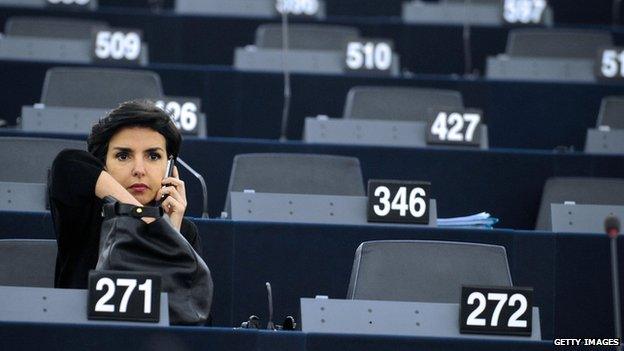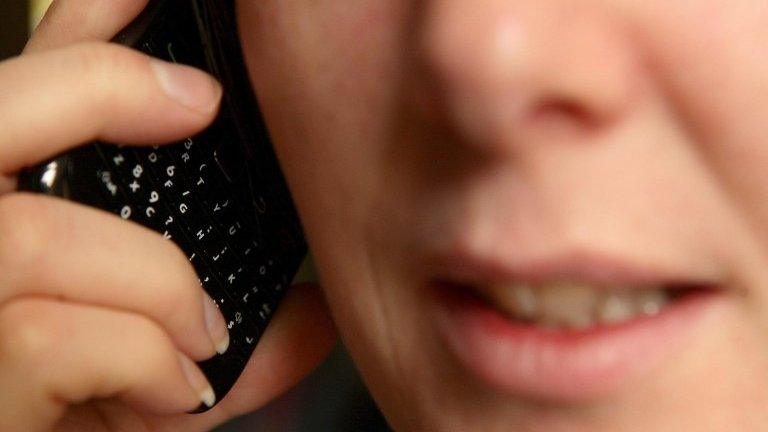EU data roaming and net neutrality plans attacked
- Published

MEPs will consider proposals that data roaming charges in Europe should stay, among others
European regulators have dropped plans to ban roaming charges and have proposed net neutrality rules allowing privileged access in some cases.
They called for an "intermediate step" that would still allow carriers to charge more to use mobiles abroad.
And net neutrality rules would bar discrimination in internet access, but allow prioritisation of some services.
The proposals were a significant departure from those first floated in 2013, observers said.
According to documents seen by the BBC, far from ending data roaming charges as was promised, the Council of the European Union has recommended that operators be allowed to add surcharges to their domestic rates.
The proposals were said to be "transitional" and mindful of "wholesale costs" incurred by the mobile operators.
But, according to Ovum analyst Matthew Howett, they would amount to the continuation of data roaming charges until at least 2018, when European lawmakers would reconsider whether or not to ban them.
The watering down of the original plan would be a blow to consumers, he told the BBC. However, he said, that was tempered by the fact that many operators had already introduced more reasonable charges.

MEPs will also consider proposed net neutrality rules
The Alliance of Liberals and Democrats for Europe (ALDE) - the fourth largest grouping of MEPs in the European Parliament - said it would fight "vigorously" for an end to data roaming by the end of this year, adding that the current proposals lacked "ambition".
The proposals also covered net neutrality rules. They sought to ensure that internet users could get online however they wanted and view any legal content they wanted, free from discrimination by their service providers.
But they also included a provision for specialised services "other than internet access services" to be prioritised if they required high quality internet access to function.
Connected cars
The exact types of service were not defined in the proposals, which were sent from the Council of the European Union to the European Parliament for consideration this week.
But observers speculated that they would include connected cars and other elements of the internet of things.
The Council of the European Union specified, however, that service providers would have to ensure a good standard of internet access for consumers if they did prioritise such services.
The ALDE said the proposed rules on net neutrality were "extremely disappointing".
'Light-touch'
A spokesman said the proposals, which were weaker than those previously promised, could "lead to commercial practices that go against consumer interests".
The European Telecommunications Network Operators' Association said it was equally unimpressed by the net neutrality rules.
It called for a "light-touch approach" in the interests of innovation, which it felt could be stymied if strong net neutrality laws were enacted.
"Today's internet-related innovation was born without net neutrality regulation. Let's make sure we can develop the innovation of tomorrow in the context of future-proof rules," a spokesman said.
- Published3 April 2014

- Published1 July 2014

- Published4 April 2014
